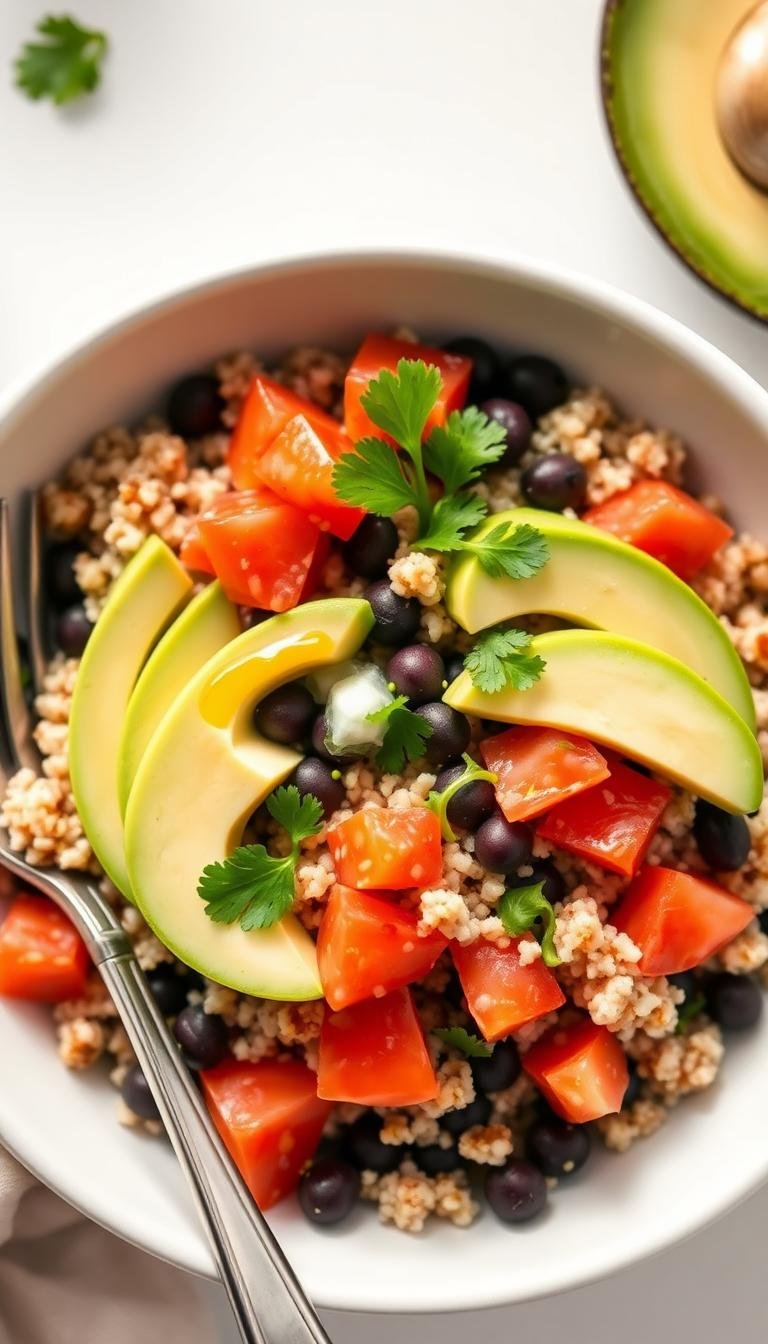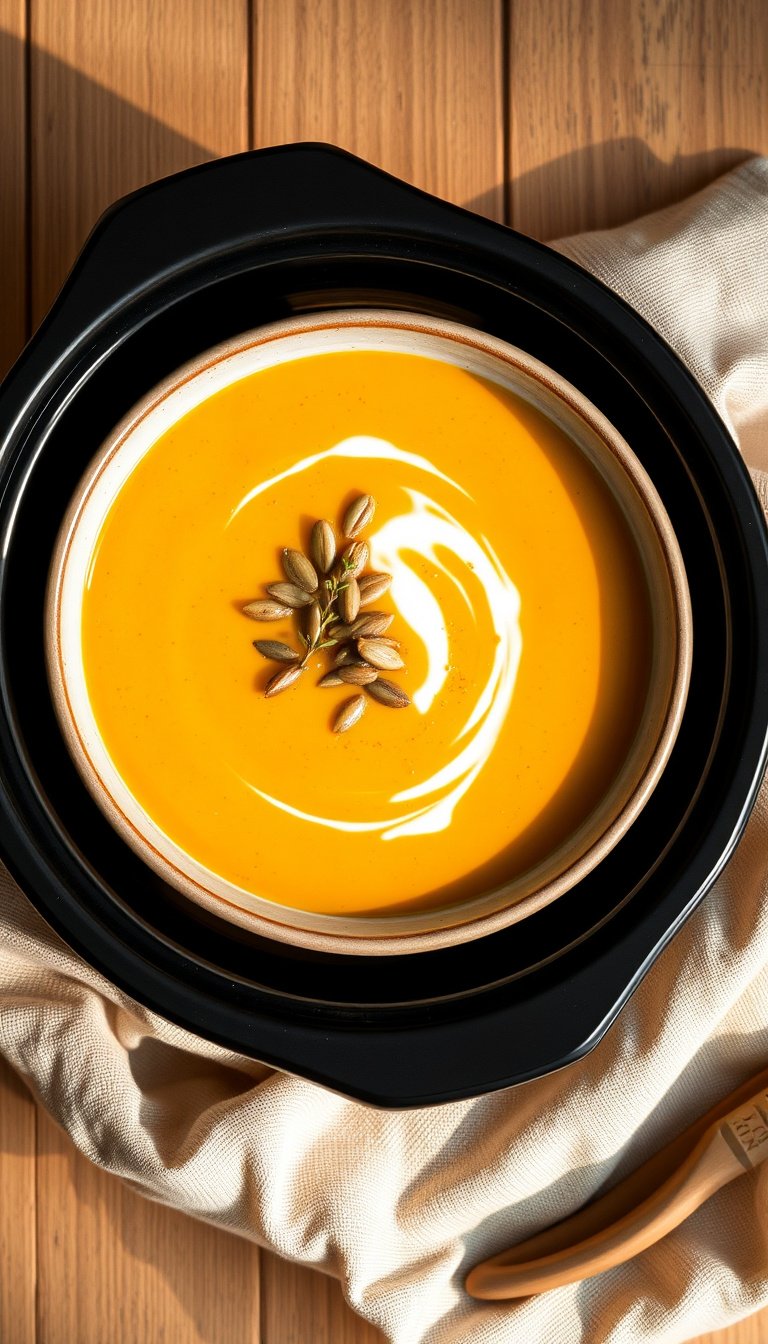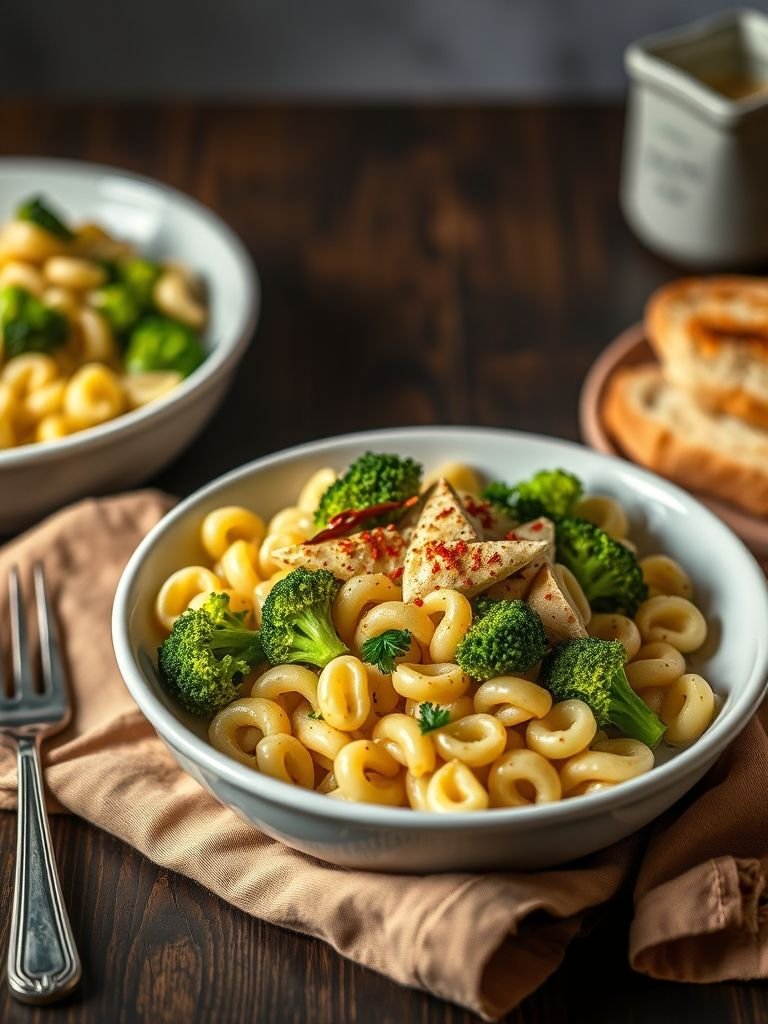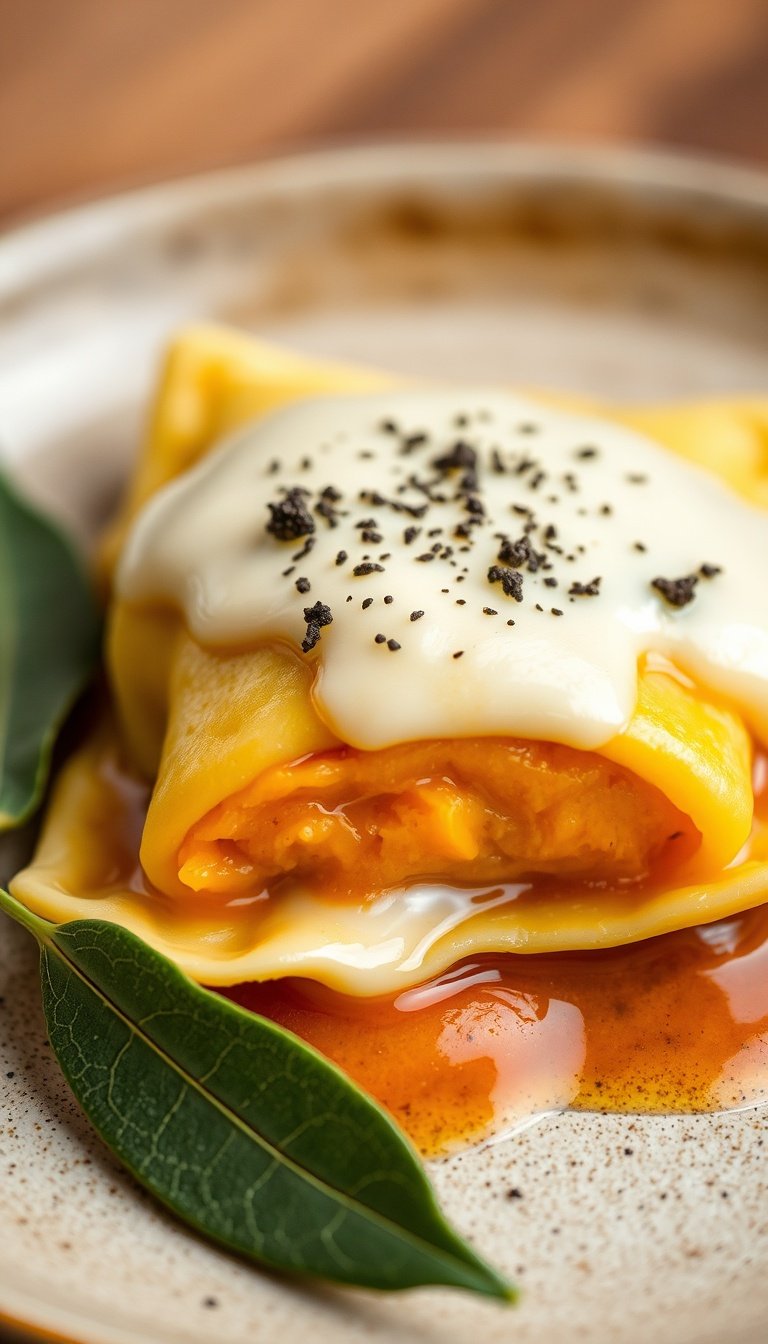Boiled eggs are a kitchen staple — versatile, nutritious, and surprisingly easy to get wrong if you don’t know the right timing. Whether you love a soft-boiled egg with a runny center or a firm, fully cooked hard-boiled egg for your salads or meal prep, one question always pops up: How long to boil eggs?
In this complete guide, you’ll learn everything you need to know — from timing for soft, medium, and hard-boiled eggs, to tips on peeling, storing, and using them in meals. Let’s get cracking!
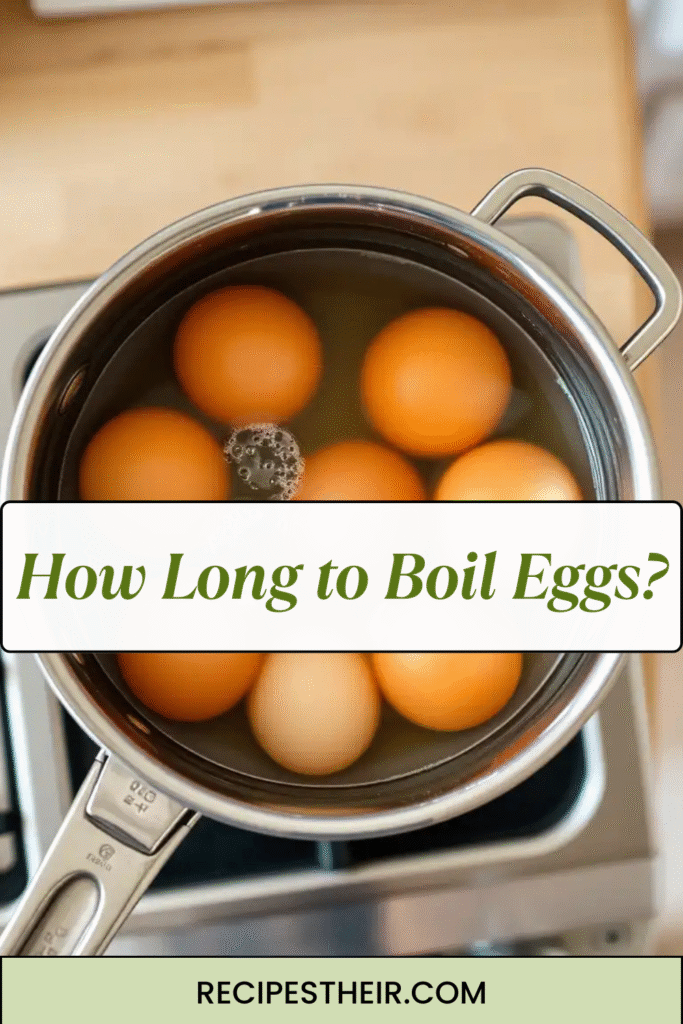
Why Boiling Eggs Right Matters
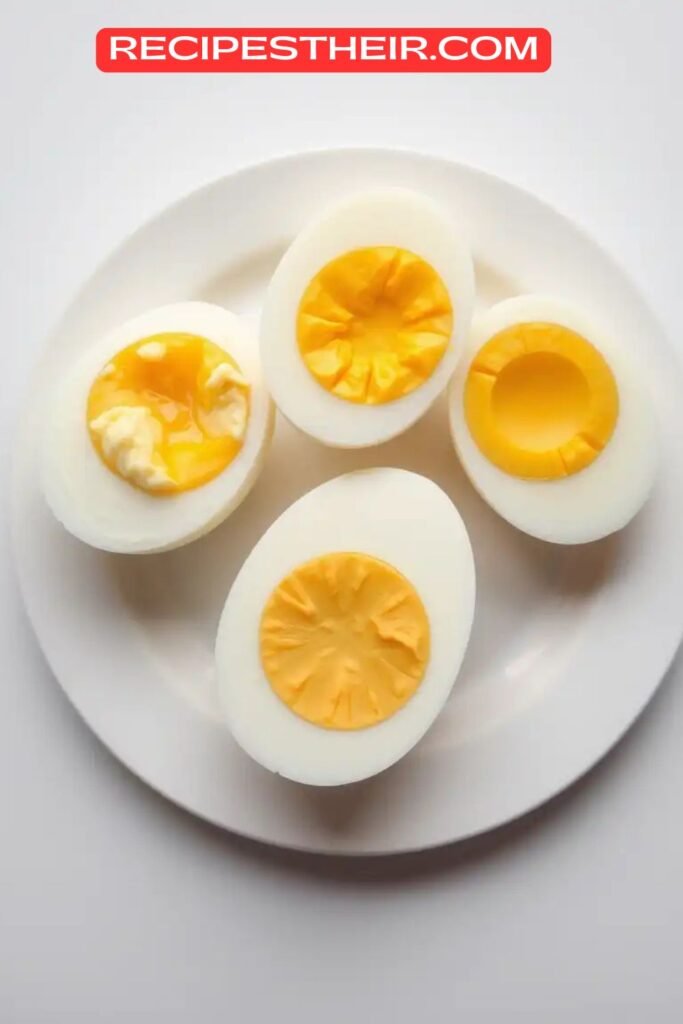
The difference between a soft-boiled and hard-boiled egg lies in a matter of minutes. Overcooking can lead to a gray-green ring around the yolk and a rubbery texture. Undercooking? A gooey, underdone center that’s not ideal for most recipes. Mastering how long to boil eggs ensures you’ll always get the texture you want.
How Long to Boil Eggs: Timing by Texture
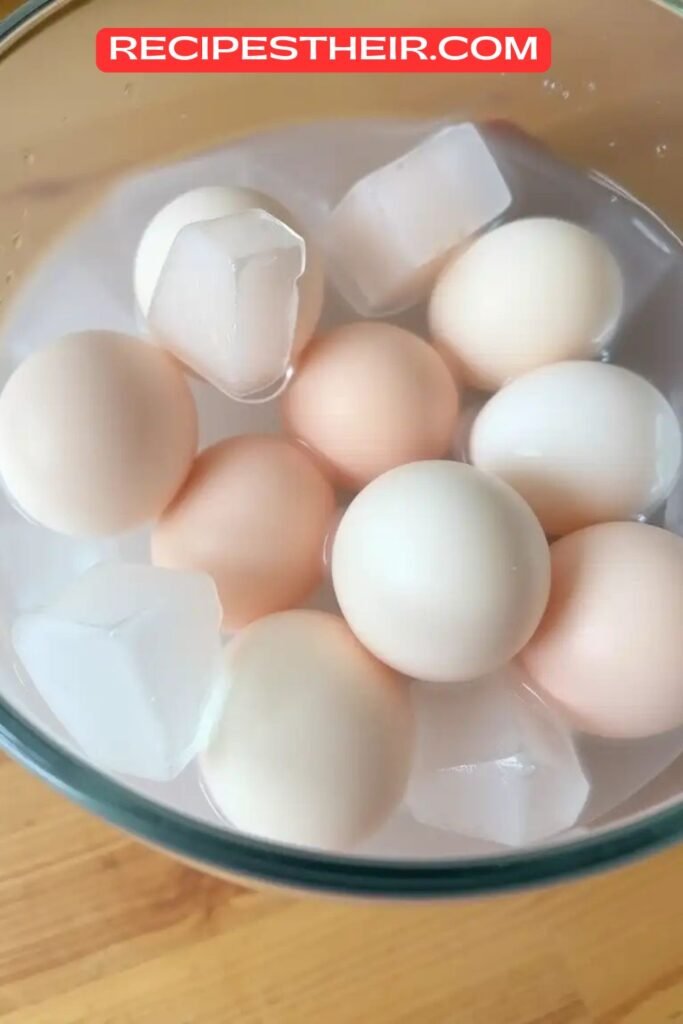
Here’s a quick breakdown of how long to boil eggs based on your desired yolk consistency. These times start once the water is boiling and you’re gently placing the eggs in the pot.
| Texture | Boil Time | Description |
|---|---|---|
| Soft-Boiled | 4-6 minutes | Whites are set, yolks are runny to jammy |
| Medium-Boiled | 7-9 minutes | Yolk is partially set, creamy center |
| Hard-Boiled | 10-12 minutes | Fully set yolk, ideal for slicing or mashing |
Step-by-Step: How to Boil Eggs Perfectly
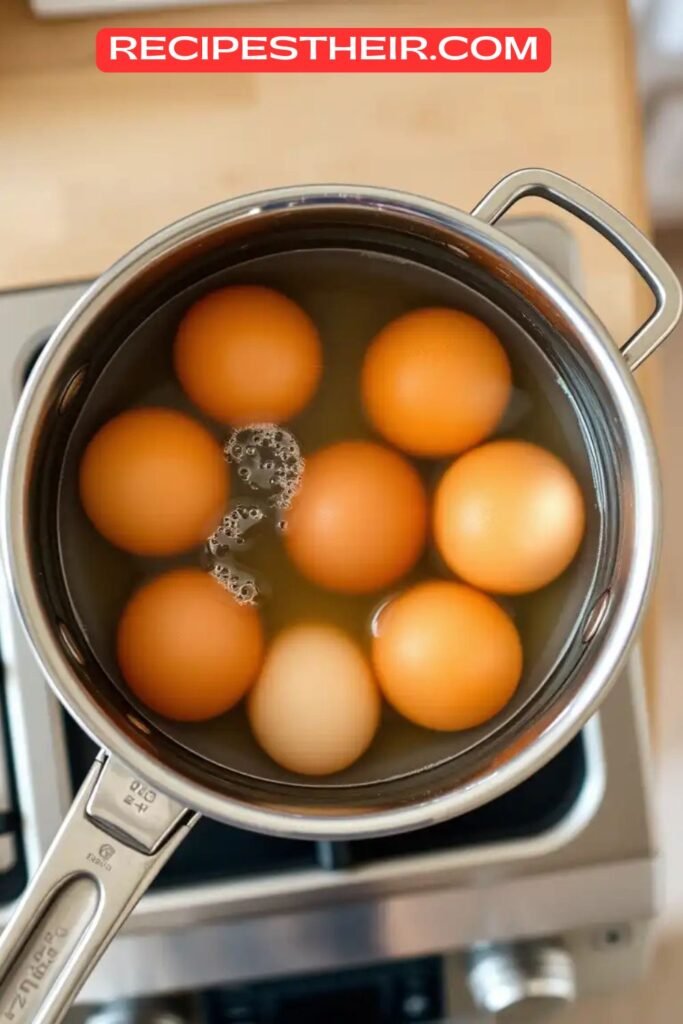
Follow this foolproof process to make sure your boiled eggs turn out just right.
Ingredients:
- Large eggs (as many as you need)
- Water (enough to cover eggs)
- Ice (for ice bath)
Instructions:
- Start with the Right Eggs: Older eggs peel more easily than fresh ones. If you just bought your eggs, let them sit in the fridge for a few days before boiling.
- Bring Water to a Boil: Fill a pot with enough water to cover the eggs by at least an inch. Bring it to a full rolling boil over medium-high heat.
- Gently Add the Eggs: Use a spoon or ladle to lower the eggs into the boiling water carefully.
- Set a Timer: Start timing based on how you want the yolk:
- 4 minutes: Very runny yolk, soft whites
- 6 minutes: Jammy yolk, tender whites
- 8 minutes: Slightly firm yolk, still creamy
- 10 minutes: Fully cooked yolk with no green ring
- 12 minutes: Extra firm yolk, ideal for egg salad
- Transfer to Ice Bath: When your timer goes off, immediately move the eggs to an ice bath (a bowl of water with ice) to stop cooking.
- Let Sit for 10-15 Minutes: This helps prevent overcooking and makes peeling easier.
Tips for Easy-to-Peel Boiled Eggs
Struggling to peel your boiled eggs? Try these tricks:
- Use older eggs: Fresh eggs have a low pH, causing the whites to stick to the shell.
- Shock them in an ice bath: This helps separate the membrane from the shell.
- Crack and roll: Lightly tap the egg on a counter and roll it gently to loosen the shell before peeling.
How to Store Boiled Eggs
- In the Shell: Store in the fridge for up to 1 week.
- Peeled Eggs: Store in an airtight container with a damp paper towel to maintain moisture. Use within 5 days.
Never leave boiled eggs at room temperature for more than 2 hours.
Boiled Egg Variations and Recipes

Now that you know how long to boil eggs, here are some tasty ways to use them:
1. Deviled Eggs
Hard-boiled eggs, mayo, mustard, and spices — a classic party favorite.
2. Egg Salad
Mash hard-boiled eggs with mayo, celery, salt, and pepper for a creamy sandwich filling.
3. Soft-Boiled Egg Toast
Top toasted sourdough with smashed avocado and a 6-minute soft-boiled egg.
4. Ramen Topping
Add a 7-minute medium-boiled egg to your favorite bowl of ramen for that iconic creamy yolk.
5. Cobb Salad
Use sliced hard-boiled eggs in salads for added protein and flavor.
Frequently Asked Questions
How long to boil eggs from cold water?
If starting from cold water, add eggs to the pot, then bring to a boil. Once boiling, turn off the heat and cover:
- Soft: Sit for 4-6 minutes
- Medium: Sit for 8-9 minutes
- Hard: Sit for 10-12 minutes
How to avoid cracked eggs when boiling?
Start with room temperature eggs and gently place them in boiling water. You can also poke a small hole in the wider end with a pushpin to relieve pressure.
Is it better to boil or steam eggs?
Steaming can make peeling even easier, especially for fresh eggs. But boiling is more traditional and widely used.
Final Thoughts: How Long to Boil Eggs
So, how long should eggs be boiled? It depends entirely on how you like them. Want a runny yolk to dip your toast? Go for 4-6 minutes. Prefer a creamy center for ramen? Try 7-8 minutes. Need solid yolks for meal prep or egg salad? Stick to 10-12 minutes.
Now that you’ve mastered the timing and technique, you’ll never second-guess your boiled eggs again. Whether it’s breakfast, lunch, or dinner, eggs are always a good idea.
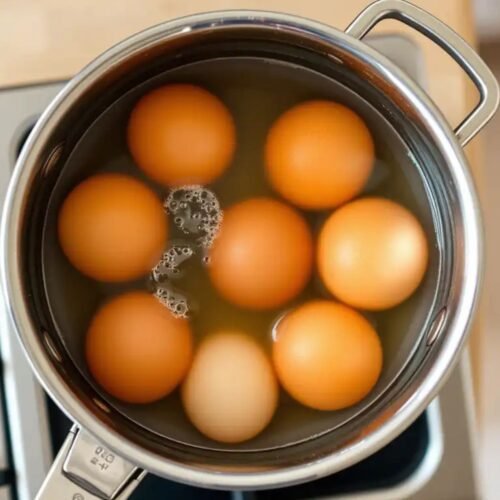
How Long to Boil Eggs
Equipment
- Medium saucepan with lid
- Slotted spoon or ladle
- Timer or stopwatch
- Bowl for ice bath
Ingredients
- 6 large eggs (room temperature for best results)
- Water (enough to cover the eggs by 1–2 inches)
- Ice cubes (for ice bath)
Instructions
- Step 1: Bring Water to a BoilFill a medium saucepan with water. You’ll want enough to submerge the eggs completely — about 1 inch above them.Set the pan over medium-high heat and bring it to a rolling boil.
- Step 2: Gently Add the EggsOnce the water is boiling, lower the heat to medium-low to maintain a gentle boil.Carefully lower each egg into the pot using a slotted spoon to prevent cracking.
- Step 3: Set Your Timer According to Desired DonenessDesired YolkBoil TimeTexture Soft-boiled4–6 minutesRunny to j ammy yolk, soft whites Medium-boiled7–9 minutes Creamy, semi-firm yolk Hard-boiled10–12 minutes Fully set, dry yolkPro Tip: Set the timer immediately after all eggs are in the water.
- Step 4: Prepare an Ice BathWhile the eggs are boiling, fill a bowl with cold water and ice. This will stop the cooking instantly when the eggs come out.
- Step 5: Transfer Eggs to Ice BathWhen the timer goes off, use a slotted spoon to transfer eggs into the ice bath.Let them chill for at least 10–15 minutes.
- Step 6: Peel and EnjoyTo peel: Gently tap the egg on the counter, roll it lightly to loosen the shell, then peel under running water to help remove stubborn pieces.
Notes
💡 Expert Tips for Success:
- Older eggs peel more easily. Use eggs that are 5–10 days old if possible.
- Start with boiling water (not cold) for more consistent results.
- Use a timer — every minute really does make a difference.
- Don’t skip the ice bath — it stops overcooking and helps make peeling easier.
- Store unpeeled eggs in the fridge up to 1 week. Peeled eggs should be used within 5 days.

